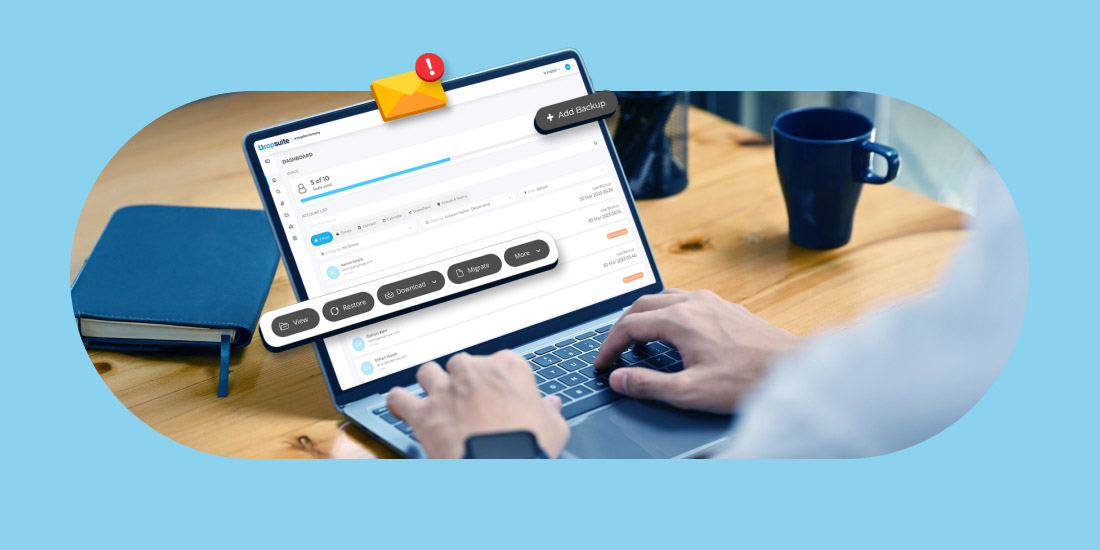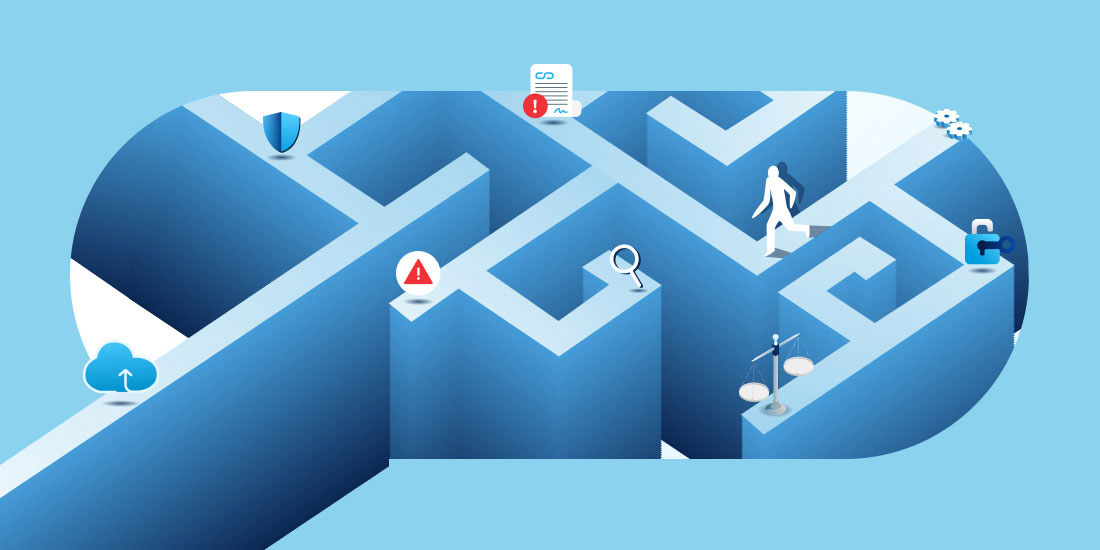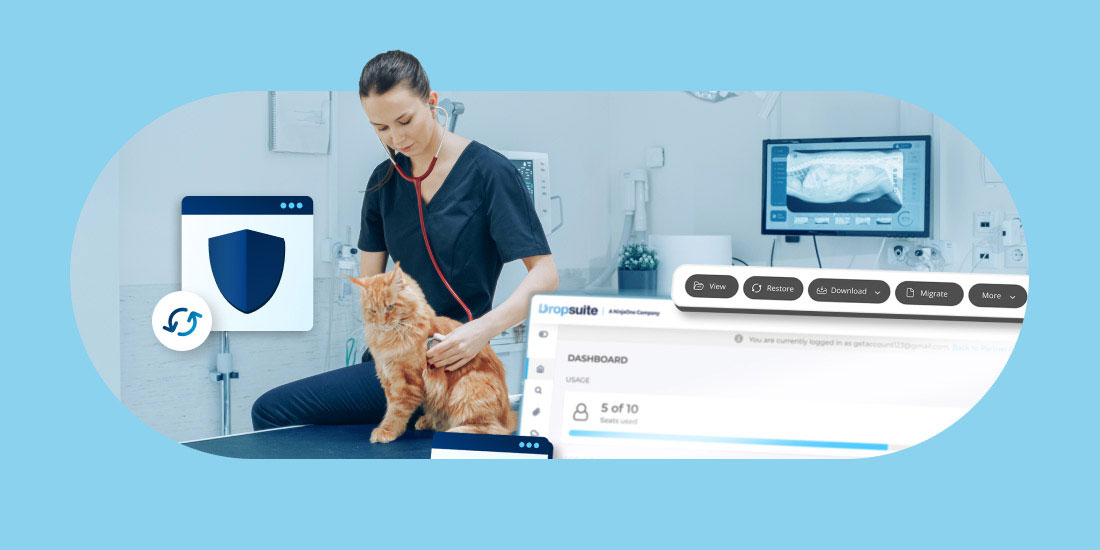Estimated Reading Time: 5 Minutes
Nonprofit organizations are essential entities that pursue public benefit and community development, making their operations and data protection paramount. In the modern digital landscape, the role of managed service providers (MSPs) and robust cybersecurity measures have become crucial to their success.
However, non-profits face unique challenges that require customized solutions. From limited budgets to critical data handling, your clients rely on your expertise to keep their operations running smoothly.
In this blog post, we’ll explore how MSPs can safeguard non-profit data effectively using Dropsuite’s solutions. We’ll also highlight various strategies to ensure your not-for-profit customers are well-defended against cyber threats, as well as compliant to the latest data protection and privacy regulations.
Why business continuity is crucial for non-profits
Non-profit organizations operate in a dynamic environment, relying on data to fulfill their missions. Whether it’s managing donor relationships, tracking program outcomes, or maintaining financial stability, data plays a pivotal role in helping non-profit organizations to receive and allocate funding and provide their customers with effective services.
One of the most valuable types of data targeted by cybercriminals is personally identifiable information (PII). They can use this data to conduct spear-phishing attacks, take fraudulent actions, leak the data online, or use it as leverage in a ransomware attack. In this case, attackers know that non-profit organizations need the data to operate and may be willing to pay a large amount of money for its safe return.
Why does data need to be protected?
Implementing a comprehensive data backup and recovery strategy is crucial for non-profit organizations as it protects all the data that they store against loss or mishandling.
Many organizations today use cloud-based productivity applications, such as Microsoft 365 and Google Workspace, and store data in the cloud. While these tools make it easy for teams to store, access, and collaborate on files and projects in real-time, they don’t offer full protection in case of data loss or deletion. They do provide built-in backup capabilities, but they are rather limited in the amount of data you can backup and don’t cover scenarios such as user errors, malicious activities, or data loss caused by third-party applications. Most importantly, both Microsoft and Google advise ITSPs and MSPs to use a third-party backup solution like Dropsuite.
That’s because they operate on a shared responsibility model. This means that the software provider is responsible for maintaining the infrastructure of the platform and will resolve any issues related to downtime or software failures (including the data center, network, applications, and OS). But, eventually the customers are responsible for protecting and handling their data against loss caused by human error, software corruption, or threat actors.
In this context, there are two main reasons for having backups in place:
Compliance Backups
Non-profit organizations are most likely required to backup their data to adhere to the rules of data protection and privacy. In the U.S., there isn’t a uniform national law governing data privacy. However, various states have their own laws regarding the collection, storage, retention, and safeguarding of data.
Although the Federal Trade Commission (FTC) typically avoids enforcing actions against non-profits, non-profits are still subject to state laws, and state attorney generals have the authority to enforce data privacy laws against them.
It’s important to understand that while most regulations don’t directly mandate the implementation of backup systems, they do require the maintenance of reasonable data security measures as part of state policies. By implementing a data backup solution, non-profit organizations can demonstrate that they are taking appropriate measures to protect their data.
Some regulations that do explicitly require you to back up your data include:
- GDPR – If a non-profit organization collects data from EU residents, they are required to comply with GDPR, even if the organizations are not based in Europe.
- HIPAA – The Security Standards: Administrative Safeguards chapter states that The Data Backup Plan implementation specification requires covered entities to: “Establish and implement procedures to create and maintain retrievable exact copies of electronic protected health information.”
- PCI-DSS – Non-profit organizations that accept donations on their websites will invariably have to deal with credit card information and thus comply with PCI-DSS, a security guideline set by credit card brands.
- NIS2 – While the directive primarily targets essential and important entities, which typically include service providers and operators of critical infrastructure, it does not explicitly exclude non-profit organizations from its scope. The directive has been designed to have a broad reach and may apply to non-profit organizations if they are involved in managing critical infrastructure within the EU’s jurisdiction.
Security Backups
In case a non-profit organization is not required by law or regulations to backup its data for compliance, it should still backup data as a security measure. While there are a variety of reasons why data loss can occur, some causes are more common than others:
- Human error is a frequent cause for data loss. It can be as trivial as an accidental file deletion or a coffee spill on a laptop. Such errors may only affect a small quantity of data, but the impact on business can be substantial, especially if the data includes personal or financial information, or is time critical.
- Natural disasters are another threat to data integrity. While earthquakes might impact businesses in unstable geographic regions, other calamities like floods and fires can strike anywhere. On-site data storage facilities are particularly vulnerable in such cases and a disaster could cause serious business disruption.
- Cybercrime is becoming the biggest threat for organizations and their data. According to Statista’s report, organizations all around the world detected 317.59 million ransomware attempts in 2023. Ransomware, a widespread malware variant, can be unintentionally installed through a malicious email link or file download. Cybercriminals use it to encrypt data or deny access, demanding a ransom for its return.
How Dropsuite helps you help non-profits
Managed Service Providers (MSPs) are trusted advisors to non-profit organizations and Dropsuite Email Backup and Email Archiving solutions were specifically designed for MSPs to provide world-class data protection to their customers.
Dropsuite’s backup services enable MSPs to store and recover an organization’s data so that employees can quickly get back to work after a data loss or system outage event.
On the other hand, Archive builds on the backup service with a few additions. Archive helps organizations comply with data security regulations through Journaling and eDiscovery.
Dropsuite is proud and excited be the exclusive Pax8 Cloud Backup and Data recovery provider in their recently launched Pax8 Tech for Non-Profit program, providing our highly rated Backup and Archiving services at reduced prices for non-profit organizations.
If you’d like to learn more about purchasing Dropsuite through Pax8 at a discounted rate or request a demo, reach out anytime!






